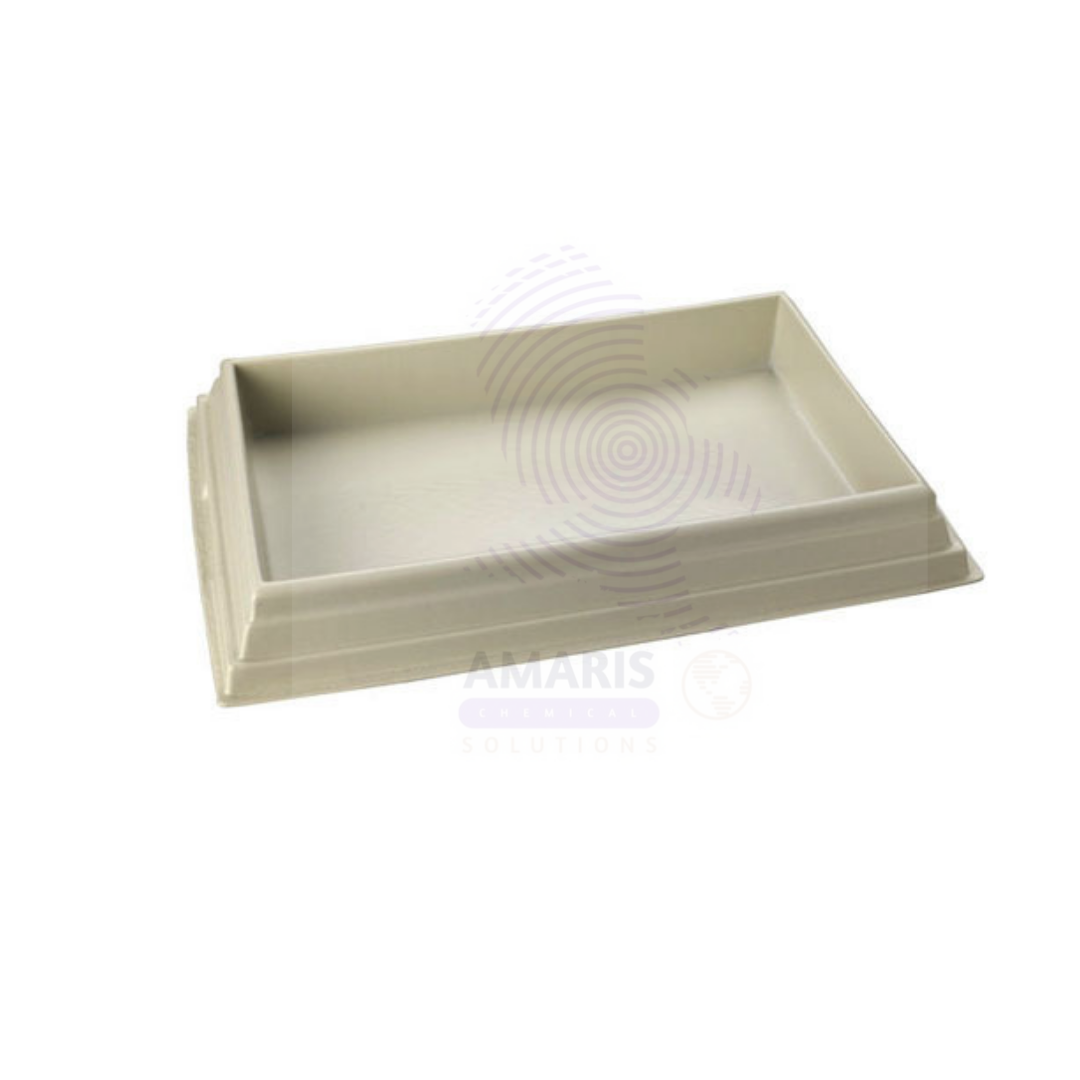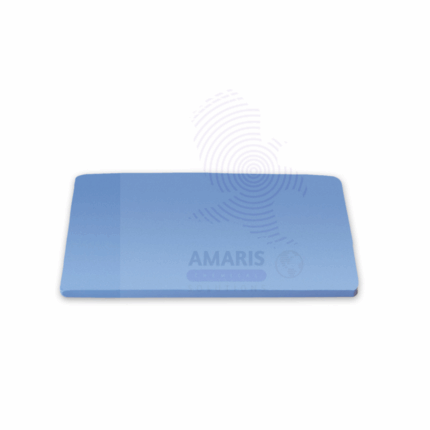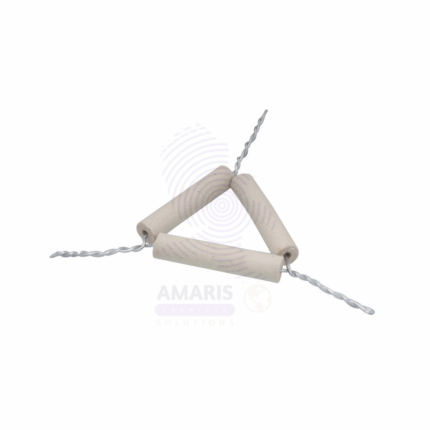“PENCIL JOCKEY” has been added to your cart. View cart
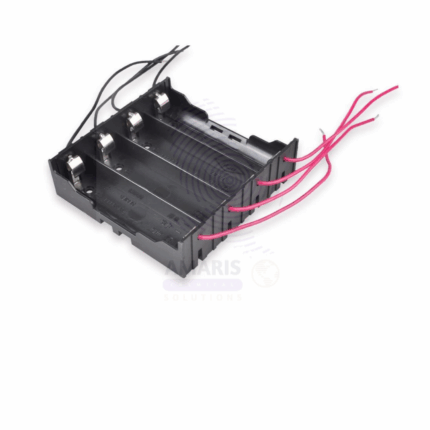
PLASTIC CELL HOLDER
$ 7.17 Original price was: $ 7.17.$ 7.08Current price is: $ 7.08.
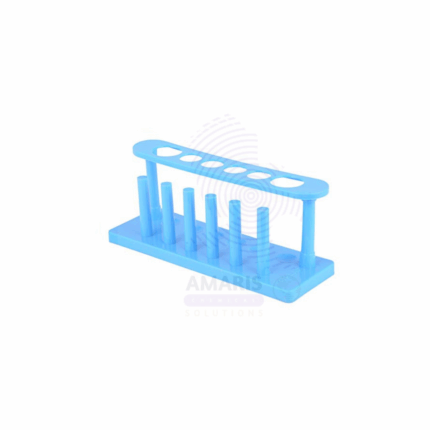
PLASTIC TEST TUBE STAND 6HOLE
$ 5.19 Original price was: $ 5.19.$ 5.08Current price is: $ 5.08.
PLASTIC DISSECTING TRAY WITHOUT WAX
$ 9.18 Original price was: $ 9.18.$ 9.07Current price is: $ 9.07.
Whatsapp Order
The Plastic Dissecting Tray without Wax is a laboratory instrument used to hold specimens during dissection procedures in biology, zoology, anatomy, and educational labs. Unlike traditional dissecting trays that include a wax layer for pinning specimens, this tray offers a reusable, wax-free surface, typically designed to accommodate separate pinning pads or mats (e.g., rubber or foam inserts). It is made from high-grade, chemical-resistant plastic such as polypropylene or ABS, offering a lightweight, durable, and easy-to-clean platform. The tray typically features raised sides to contain fluids and provide a controlled
Description
Table of Contents
Toggle
PLASTIC DISSECTING TRAY WITHOUT WAX
Primary Uses
- Educational and Biological Laboratory Applications
- Holding and containing specimens during dissection in biology classes.
- Used for anatomical studies of plants, invertebrates, and vertebrate organisms.
- Facilitates the observation and identification of internal structures.
- Compatible with reusable pinning pads or silicone bases (not included).
- Keeps the work area clean and confined by containing fluids and tissue.
Secondary Uses
- Research and Demonstration Settings
- Used in veterinary or pre-medical training for anatomical demonstration.
- Supporting small-scale specimen preparation in pathology or forensic studies.
- Suitable for dissection tool layout and organization during procedures.
- May serve as a tray for temporary sample storage in histology labs.
KEY PRODUCT FEATURES
1.Basic Identification Attributes
- Material: Polypropylene, ABS plastic, or other chemical-resistant polymers.
- Design: Flat bottom with raised edges; smooth inner surface.
- Sizes: Common dimensions include 11"×7", 14"×10", etc.
- Color: Usually white, gray, or black for contrast with specimens.
- Pinning Base: Wax-free; designed to be used with separate inserts.
2.Physical & Chemical Properties
- Chemical Resistance: Resists staining and degradation from formaldehyde, alcohols, and saline.
- Waterproof and Leakproof: Prevents leakage of fixatives or biological fluids.
- Non-porous Surface: Easy to disinfect and clean after use.
- Lightweight: Easy to transport and handle in classrooms or labs.
3.Safety & Hazard Attributes
- Non-toxic, inert surface.
- Reduces risk of biohazard contamination when used with disposable liners.
4.Storage & Handling Attributes
- Store dry and stacked to save space.
- Clean with disinfectant after each use.
- Avoid exposure to high heat that may warp plastic.
5.Regulatory & Compliance Attributes
- Complies with educational lab safety standards.
- Suitable for use in teaching facilities and regulated lab environments.
6.Environmental & Health Impact
- Reusable and recyclable depending on material type.
- Does not produce biological waste unless contaminated.
SAFETY HANDLING PRECAUTIONS
Safety Handling Precautions
- Wear gloves, lab coat, and eye protection during use.
- Sterilize tray after dissection of preserved or biological specimens.
First Aid Measures
- If contact with preserved tissue or chemicals occurs, wash skin thoroughly.
- In case of accidental cuts during dissection, clean and dress wound properly.
Firefighting Measures
- Plastic is combustible; keep away from open flame.
- Use standard extinguishers (foam, CO₂, dry powder) for plastic fires.
Related products
Dissecting Soft Board
Dissecting Soft Board is a pliable, cushioned platform used in laboratories and educational settings to securely pin and stabilize biological specimens during dissection. Made from resilient, non-toxic materials such as foam, rubber, or silicone, the soft board provides an ideal surface that allows easy insertion and repositioning of pins without damaging the specimen or the work surface. It enhances precision and control, making dissections cleaner and more manageable. The board is lightweight, easy to clean, and reusable, commonly used in medical, veterinary, and research laboratories.
Italtext Premium Heavy Duty
Italtext Premium Heavy Duty is a robust, high-quality laboratory apparatus engineered for rigorous and extended use in demanding lab environments. Designed with durability and stability in mind, this heavy-duty apparatus supports a wide range of laboratory operations, from analytical procedures to sample processing. Its premium construction ensures consistent performance under mechanical stress, high-frequency use, and exposure to chemicals. Ideal for laboratory professionals requiring reliable and long-lasting equipment, Italtext Premium offers an optimal balance of strength, precision, and ergonomic handling in both research and industrial settings.
Laboratory tripod stand
Laboratory Tripod Stand is a sturdy, three-legged support structure used in laboratories to hold and support equipment such as beakers, flasks, and crucibles during heating or experimental setups. Typically made from corrosion-resistant metal, it provides a stable base for apparatus over Bunsen burners or other heat sources. Its design facilitates even heating and secure positioning of lab glassware and equipment during various chemical, biological, and industrial procedures.
PENCIL JOCKEY
A Pencil Jockey is a small laboratory tool designed to securely hold and manipulate pencils or fine writing instruments during detailed drawing, drafting, or note-taking tasks. Commonly used in scientific laboratories, drafting rooms, and educational settings, it ensures precision and comfort during use. Typically made from lightweight, durable
PIPE CLAY TRIANGLES
Pipe Clay Triangles are heat-resistant supports used in laboratory setups to hold crucibles over a Bunsen burner or other heat sources. They consist of three lengths of ceramic (pipe clay) tubing threaded over a triangular metal wire frame, typically made of galvanized iron or nickel-chromium alloy. These ceramic-coated wires provide stable and high-temperature-resistant platforms, allowing crucibles to be heated directly during ashing, calcination, or other high-temperature experiments. Widely used in chemistry labs and educational institutions, they are essential components for supporting small containers while minimizing heat transfer loss or instability.
PLASTIC CELL HOLDER
A Plastic Cell Holder is a laboratory accessory used to securely hold electrochemical or dry cells (batteries) in place during physics or electrical experiments. It is typically made from non-conductive, durable plastic and may feature metal terminals or spring-loaded clips for electrical connections. These holders provide a stable and safe platform to integrate batteries into circuits for educational demonstrations, testing setups, or prototyping purposes. Designed for use with common battery sizes (such as D, C, AA, or specialized cells), the holder ensures easy insertion, removal, and reliable connection of power sources without short-circuiting. It is widely used in physics labs, electronics training, and school science kits.
PLASTIC TEST TUBE STAND 6HOLE
The Plastic Test Tube Stand 6Hole is a laboratory support accessory designed to securely hold test tubes in an upright position during experimental procedures, storage, or drying. This version features six equally spaced holes, each capable of accommodating standard-size test tubes. Constructed from chemical-resistant, durable plastic such as polypropylene or ABS, the stand is lightweight, stable, and easy to clean. Often used in educational, analytical, and clinical laboratories, it provides a convenient and organized way to manage test tubes during chemical reactions, sample handling, or heating processes. The design may also include drying pegs or smaller side holes for inverted tube drying.
Terminals
Product Description
Terminals are essential electrical connectors used in laboratory and industrial setups to create secure, reliable connections between wires, cables, and electrical equipment. Typically made from conductive metals such as copper or brass and often coated with corrosion-resistant materials, terminals facilitate the transfer of electrical signals or power with minimal resistance. They come in various types including ring, spade, fork, and blade terminals to suit diverse wiring requirements. Terminals are widely used in electrical circuits, instrumentation, and control panels within laboratories to ensure safe and efficient electrical connections.


 Preservatives(food)
Preservatives(food) Flavor Enhancers
Flavor Enhancers Acidulants
Acidulants Sweeteners
Sweeteners Antioxidants
Antioxidants Colorants(food)
Colorants(food) Nutraceutical Ingredients (food)
Nutraceutical Ingredients (food) Nutrient Supplements
Nutrient Supplements Emulsifiers
Emulsifiers
 Collectors
Collectors Dust Suppressants
Dust Suppressants Explosives and Blasting Agents
Explosives and Blasting Agents Flocculants and Coagulants
Flocculants and Coagulants Frothers
Frothers Leaching Agents
Leaching Agents pH Modifiers
pH Modifiers Precious Metal Extraction Agents
Precious Metal Extraction Agents
 Antioxidants(plastic)
Antioxidants(plastic) Colorants (Pigments, Dyes)
Colorants (Pigments, Dyes) Fillers and Reinforcements
Fillers and Reinforcements Flame Retardants
Flame Retardants Monomers
Monomers Plasticizers
Plasticizers Polymerization Initiators
Polymerization Initiators Stabilizers (UV, Heat)
Stabilizers (UV, Heat)
 Antifoaming Agents
Antifoaming Agents Chelating Agents
Chelating Agents Coagulants and Flocculants
Coagulants and Flocculants Corrosion Inhibitors
Corrosion Inhibitors Disinfectants and Biocides
Disinfectants and Biocides Oxidizing Agents
Oxidizing Agents pH Adjusters
pH Adjusters Scale Inhibitors( water)
Scale Inhibitors( water)
 Antioxidants(cosmetic)
Antioxidants(cosmetic) Emollients
Emollients Fragrances and Essential Oils
Fragrances and Essential Oils Humectants
Humectants Preservatives
Preservatives Surfactants(cosmetic)
Surfactants(cosmetic) Thickeners
Thickeners UV Filters
UV Filters
 Fertilizers
Fertilizers Soil Conditioners
Soil Conditioners Plant Growth Regulators
Plant Growth Regulators Animal Feed Additives
Animal Feed Additives Biostimulants
Biostimulants Pesticides (Herbicides, Insecticides, Fungicides)
Pesticides (Herbicides, Insecticides, Fungicides)
 Active Pharmaceutical Ingredients (APIs)
Active Pharmaceutical Ingredients (APIs) Excipients
Excipients Solvents(pharmaceutical)
Solvents(pharmaceutical) Antibiotics
Antibiotics Antiseptics and Disinfectants
Antiseptics and Disinfectants Vaccine Adjuvants
Vaccine Adjuvants Nutraceutical Ingredients (pharmaceutical)
Nutraceutical Ingredients (pharmaceutical) Analgesics & Antipyretics
Analgesics & Antipyretics
 Analytical Reagents
Analytical Reagents Solvents(lab)
Solvents(lab) Chromatography Chemicals
Chromatography Chemicals Spectroscopy Reagents
Spectroscopy Reagents microbiology-and-cell-culture-reagents
microbiology-and-cell-culture-reagents Molecular Biology Reagents
Molecular Biology Reagents Biochemical Reagents
Biochemical Reagents Inorganic and Organic Standards
Inorganic and Organic Standards Laboratory Safety Chemicals
Laboratory Safety Chemicals Specialty Laboratory Chemicals(Special Laboratory Equipment)
Specialty Laboratory Chemicals(Special Laboratory Equipment)
 Demulsifiers
Demulsifiers Hydraulic Fracturing Fluids
Hydraulic Fracturing Fluids Scale Inhibitors(oil)
Scale Inhibitors(oil) Surfactants(oil)
Surfactants(oil) Drilling Fluids
Drilling Fluids
 Dyes and Pigments
Dyes and Pigments Bleaching Agents
Bleaching Agents Softening Agents
Softening Agents Finishing Agents
Finishing Agents Antistatic Agents
Antistatic Agents
 Admixtures
Admixtures Waterproofing Agents
Waterproofing Agents Sealants and Adhesives
Sealants and Adhesives Curing Compounds
Curing Compounds Concrete Repair Chemicals
Concrete Repair Chemicals Anti-Corrosion Coatings
Anti-Corrosion Coatings
 Surfactants(cleaning)
Surfactants(cleaning) Builders
Builders Enzymes
Enzymes Solvents (Cleaning)
Solvents (Cleaning) Fragrances
Fragrances
 Electronic Chemicals
Electronic Chemicals Catalysts
Catalysts Lubricants
Lubricants Photographic Chemicals
Photographic Chemicals Refrigerants
Refrigerants Automotive chemicals
Automotive chemicals Pyrotechnic Chemicals
Pyrotechnic Chemicals
 Biodegradable Surfactants
Biodegradable Surfactants Bio-based Solvents
Bio-based Solvents Renewable Polymers
Renewable Polymers Carbon Capture Chemicals
Carbon Capture Chemicals Wastewater Treatment Chemicals
Wastewater Treatment Chemicals
 Pigments
Pigments Solvents(paint)
Solvents(paint) Specialty Coatings
Specialty Coatings Binders/Resins
Binders/Resins Additives
Additives Driers
Driers Anti-Corrosion Agents
Anti-Corrosion Agents Functional Coatings
Functional Coatings Application-Specific Coatings
Application-Specific Coatings
 Fresh Herbs
Fresh Herbs Ground Spices
Ground Spices Whole Spices
Whole Spices Spice Blends
Spice Blends Dried Herbs
Dried Herbs
 Leavening Agents
Leavening Agents Dough Conditioners
Dough Conditioners Flour Treatments
Flour Treatments Fat Replacers
Fat Replacers Decoratives
Decoratives Preservatives(baking)
Preservatives(baking)
 Plasticizers & Softeners
Plasticizers & Softeners Reinforcing Agents
Reinforcing Agents Adhesion Promoters
Adhesion Promoters Vulcanizing Agents
Vulcanizing Agents Antidegradants
Antidegradants Blowing Agents
Blowing Agents Fillers & Extenders
Fillers & Extenders Accelerators & Retarders
Accelerators & Retarders